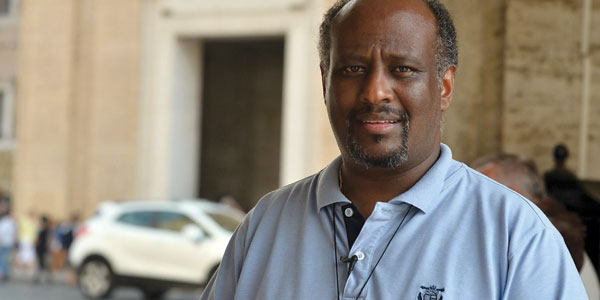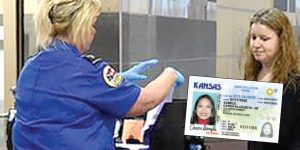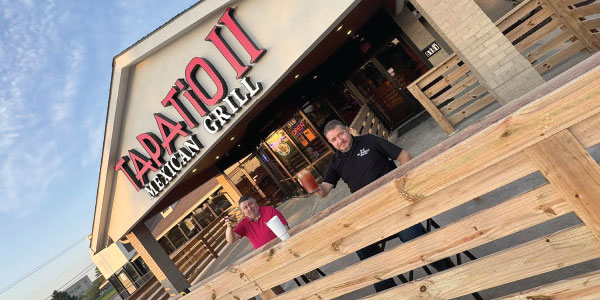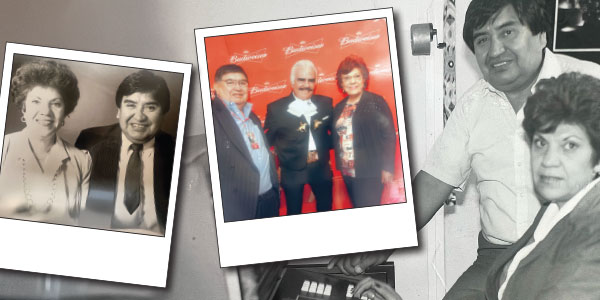
ROMA — Esta es la historia de cómo una sola persona con un celular puede salvar muchas vidas.
Este año más de 4,650 personas han muerto tratando de llegar de África a Europa, según la Organización Internacional para la Migración. El Mediterráneo es el cruce ilegal más peligroso del mundo: Este año ya han muerto mil personas más que en el 2015. Y las cosas no parecen mejorar.
Los barcos cargados de inmigrantes salen, generalmente, de las costas de Libia, Túnez y Argelia para tratar de llegar a Italia o Grecia. Una cuarta parte de los refugiados viene huyendo de Siria. El resto proviene de Afganistán, Irak, Sudán, Nigeria, Eritrea, y otros países africanos y del Medio Oriente. La mayoría son hombres (55%), pero el 27% son niños.
Hay barcos que, sencillamente, no llegan y todos sus pasajeros se ahogan. Otros se quedan sin gasolina, se pierden o van a la deriva. Y ese es el momento de llamar al padre Mussie Zerai, un sacerdote católico que huyó en su adolescencia del régimen militar de Eritrea y que divide su tiempo entre Italia y Suiza.
En 2003, Zerai dio su número telefónico a un periodista que estaba visitando a un grupo de refugiados procedentes de Eritrea y Etiopía en un centro de detención en Libia. Ahí, el periodista dio el número telefónico de Zerai a los refugiados y, eventualmente, terminó en una pared en el centro de detención con un mensaje: “En caso de emergencia, llame a este número”.
Las emergencias son frecuentes. Cuando el padre Zerai recibe una llamada, toma todos los datos sobre el barco, incluyendo el número de personas que lleva. Trata de conseguir las coordenadas del teléfono satelital que usan los refugiados, y luego le da la información a la guardia costera italiana y a organizaciones de rescate. El resultado son cientos — quizá miles — de vidas salvadas.
Sólo este año, más de 345 mil personas han llegado como refugiados a Europa y esa corriente no parece tener fin. Las guerras en Irak, Afganistán, Libia y Siria — y la pobreza, el caos y los regímenes autoritarios en varios países africanos — indican, claramente, que cientos de miles de inmigrantes seguirán llegando a Europa en los próximos años. La pregunta es ¿qué hacer con ellos?
El padre Zerai tiene la respuesta: Hay que ayudarlos. “La alternativa”, me dijo en una entrevista, “es luchar contra los traficantes (de personas) y, al mismo tiempo, tener canales de inmigración legal”. Esto implica un corredor humanitario para los que huyen de la guerra y la pobreza, programas de asentamiento en terceros países, visas humanitarias, y acuerdos bilaterales entre países que expulsan gente y los que los reciben.
Pero el ambiente político en Europa no es propicio para este tipo de soluciones.
Al igual que en Estados Unidos, en Europa hay un fuerte movimiento antiinmigrante.
A pesar de que Alemania, por ejemplo, recibió más de un millón de refugiados en 2015, en otros países se han cerrado las puertas totalmente y, como Donald Trump, proponen muros y cárcel a los recién llegados.
Pero con ese plan, los únicos que ganan son los traficantes de personas. “Mientras más restrictivas sean las políticas migratorias en Europa”, me dijo el padre Zerai, “más negocio para los traficantes de humanos”.
El padre Zerai calcula que los traficantes ganan más de mil millones de dólares al año llevando inmigrantes ilegalmente de África a Europa. Muchos de los inmigrantes corren el riesgo de ser usados en el tráfico de órganos, y las mujeres podrían ser vendidas a bandas criminales para explotarlas sexualmente.
Sería fácil, e injusto, criticar a los inmigrantes por tratar de irse a un país que no es el suyo. Pero, como dice el padre Zerai, lo único que están buscando es una vida digna para ellos y sus hijos. Y una vida digna comienza con el simple hecho de sobrevivir en otro país.
La verdad, no hay una solución fácil y a corto plazo para esta crisis humanitaria. Una vez que pase el invierno y las aguas del Mediterráneo se calienten de nuevo, volveremos a escuchar de tragedias masivas en el mar. Pero lo que no escucharemos en las noticias es sobre los inmigrantes que, gracias a una llamada al padre Zerai, salvaron la vida. Por eso le llaman “el ángel del mar”.
(Puede ver el video de mi entrevista con el padre Zerai aquí: bit.ly/2gdX9TG.)
(Jorge Ramos, periodista ganador del Emmy, es el principal director de noticias de Univision Network. Ramos, nacido en México, es autor de nueve libros de grandes ventas, el más reciente de los cuales es “A Country for All: An Immigrant Manifesto”.)
(¿Tiene algún comentario o pregunta para Jorge Ramos? Envié un correo electrónico a Jorge.Ramos@nytimes.com. Por favor incluya su nombre, ciudad y país.)
The Angel of the Seas
ROME — One person with a cellphone can save so many lives.
This year, more than 4,650 people fleeing from Africa to Europe have perished on the Mediterranean Sea, according to the International Organization for Migration — about 1,000 more than last year. The Mediterranean is the deadliest crossing in the world, and the situation doesn’t seem to be improving.
The boats overloaded with desperate people usually embark from points in Libya, Tunisia and Algeria, heading to Italy or Greece. One-fourth of those on board are fleeing from Syria; the rest come from Afghanistan, Iraq, Sudan, Nigeria, Eritrea, or other nations in Africa and the Middle East. Most are men (55%), but 27% are children.
Almost every day in warmer months come reports of capsized boats and multiple drownings. Some vessels are simply lost at sea. Others run out of fuel and begin to drift aimlessly. That’s when Father Mussie Zerai gets a call.
Zerai is a Catholic priest who fled Eritrea’s military regime as a teenager and now divides his time between Italy and Switzerland. In 2003, Zerai gave his phone number to a journalist who was visiting a group of refugees from Eritrea and Ethiopia at a detention center in Libya. There, the journalist gave Zerai’s phone number to the refugees, and it eventually ended up on a wall in the detention center with a message: “In case of emergency, call this number.”
Emergencies occur often. When Zerai gets a call, he writes down all he can about the boat — especially how many people are aboard. Then he tries to get the coordinates of the satellite phone being used by the passengers and relays that information to the Italian Coast Guard and other rescue organizations. Hundreds, even thousands, of lives have been saved.
This year alone, more than 345,000 refugees have arrived in Europe, a steady influx that doesn’t seem to be slowing. Sustained conflict in Iraq, Afghanistan, Libya and Syria — combined with the poverty and chaos in authoritarian regimes in Africa — virtually assure that hundreds of thousands of people will keep trying to escape. For Europe and other destinations, the overwhelming challenge remains: What to do with all these people?
Zerai has an answer: Help in any way you can. “The alternative is to fight human trafficking,” he told me in a recent interview, “and, at the same time, to have legal immigration.” Zerai advocates for the creation of a humanitarian corridor, including settlement programs and special visas. He also calls for bilateral agreements among countries that aim to expel people and those willing to take them in.
But the current political environment in Europe doesn’t support these kinds of solutions. As is the case in the United States, anti-immigrant sentiments have spread across Western Europe. And while Germany took in more than a million refugees in 2015, other countries have opted to try and shut their doors. Like Donald Trump in the U.S., some European leaders are proposing to build walls or imprison outsiders who cross the border without permission.
Zerai says such strategies are deeply counterproductive. “More restrictive [immigration] policy in Europe, more business for human trafficking,” he told me.
Zerai estimates that traffickers earn over $1 billion a year smuggling people from Africa to Europe. Organ traffickers target them, and criminal gangs sell women into sexual exploitation.
For many Europeans, it’s easy to criticize the outsiders, however treacherous their passage. But, as Zerai points out, these people are only looking for an opportunity for themselves and their children to lead dignified lives. That starts with simply being able to survive in another country.
The pressure isn’t easing anytime soon. Once the winter is over and warmer weather arrives, we’ll hear about more tragedies on the Mediterranean. What we won’t hear about is the lives that were saved thanks to a phone call to Father Zerai. That’s why they call him the “angel of the seas.”
(The video of my interview with Father Zerai can be viewed here: bit.ly/2gdX9TG.)
(Jorge Ramos, an Emmy Award-winning journalist, is a news anchor on Univision and the host of “America With Jorge Ramos” on Fusion. Originally from Mexico and now based in Florida, Ramos is the author of several best-selling books. His latest is “Take a Stand: Lessons From Rebels.” Email him at jorge.ramos@nytimes.com.)










